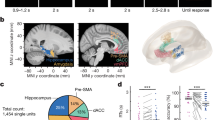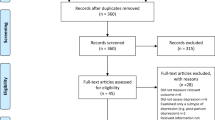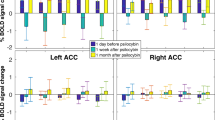Abstract
A rapidly growing body of preclinical data has implicated the glutamatergic N-methyl-d-aspartate (NMDA) receptor in memory and other cognitive processes. There is comparatively less information about this receptor system in human cognition. We examined the effects of subanesthetic doses of ketamine, a noncompetitive NMDA receptor antagonist, on two forms of memory, free recall and recognition, as well as attention and behavior in a double-blind, placebo-controlled, 1-hour infusion in 15 healthy volunteers. Ketamine produced decrements in free recall, recognition memory, and attention. In addition, ketamine induced a brief psychosis in our healthy volunteers marked by thought disorder and withdrawal-retardation. Ketamine-induced memory impairments were not accounted for by changes in subject's attention and were not significantly related to psychosis ratings. These data suggest that the NMDA receptor plays a direct role in two types of explicit memory. The implications of these data for the pathophysiology of schizophremia are discussed.
Similar content being viewed by others
Article PDF
Author information
Authors and Affiliations
Rights and permissions
About this article
Cite this article
Malhotra, A., Pinals, D., Weingartner, H. et al. NMDA Receptor Function and Human Cognition: The Effects of Ketamine in Healthy Volunteers. Neuropsychopharmacol 14, 301–307 (1996). https://doi.org/10.1016/0893-133X(95)00137-3
Received:
Revised:
Accepted:
Published:
Issue Date:
DOI: https://doi.org/10.1016/0893-133X(95)00137-3
Keywords
This article is cited by
-
Acute exposure of microwave impairs attention process by activating microglial inflammation
Cell & Bioscience (2024)
-
Are there links between Alzheimer’s disease and ADHD? The efficacy of acetylcholinesterase inhibitors and NMDA receptor antagonists in controlling ADHD symptoms: a systematic review
Middle East Current Psychiatry (2024)
-
A Kpna1-deficient psychotropic drug-induced schizophrenia model mouse for studying gene–environment interactions
Scientific Reports (2024)
-
Activation of prefrontal parvalbumin interneurons ameliorates working memory deficit even under clinically comparable antipsychotic treatment in a mouse model of schizophrenia
Neuropsychopharmacology (2024)
-
Big data analytics capability in healthcare operations and supply chain management: the role of green process innovation
Annals of Operations Research (2024)



